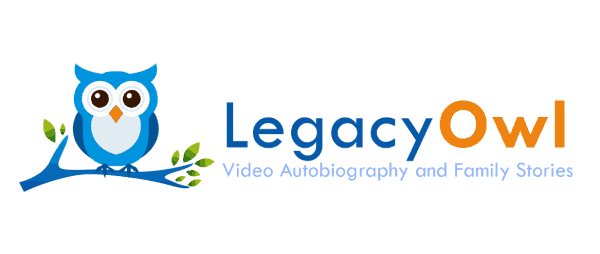 It doesn’t take much to trigger a walk down memory lane. You hear an old song, see a picture taken of you as a child or you’re reminded of a major historical event. We have a lifetime of experiences and so much that we want to share with our children. But just think about it. How much do you know about your parents’ experiences or your grandparents’ lives? Have you ever really lent them a listening ear? If not, you could be missing out on amazing stories and impactful lessons that you’re never too old to learn from. You may even get answers to those nagging questions you’ve had for your entire life.
It doesn’t take much to trigger a walk down memory lane. You hear an old song, see a picture taken of you as a child or you’re reminded of a major historical event. We have a lifetime of experiences and so much that we want to share with our children. But just think about it. How much do you know about your parents’ experiences or your grandparents’ lives? Have you ever really lent them a listening ear? If not, you could be missing out on amazing stories and impactful lessons that you’re never too old to learn from. You may even get answers to those nagging questions you’ve had for your entire life.
As a writer who’s been researching and documenting my family’s history for years, I can tell you that legacy storytelling is powerful. It puts us on a journey of discovery and self-reflection, and it forces us to challenge ourselves and seek more knowledge about the world around us. Sharing family memories also brings us closer to our loved ones through meaningful conversations, while ensuring that our family’s history will be told to future generations. And there’s more—here are three other reasons why legacy storytelling is so important.
- We find inspiration to be the best versions of ourselves

Hood Byers, Grandfather of Kelly Porter
Nothing is more inspiring than stories of how someone overcame adversity or persisted until they reached a goal, and don’t we love a good ‘rags to riches’ story? Most of us can find those narratives within our own families, especially among older relatives whose lives often demonstrate incredible perseverance and grit. This is mainly because of the unique struggles that the G.I. (Greatest Generation), Traditionalists, and Baby Boomers had to face—world wars, economic strife, and the fight for civil rights.
I think of my grandfather who made many tough sacrifices for his family during the Great Recession; how he closed his business in Cherryville, North Carolina in the late 1930s and traveled with his oldest son to Washington, DC, an unfamiliar city. He’d left his wife and five other children behind until he could find steady work and a place to live. Even after the family was reunited in DC, there were nights when dinner consisted only of sardines and crackers because money was so tight. I’m sure many families have similar tales of courage and times when they had to make do with next to nothing. I’ll admit that those types of survival stories really force me to check myself whenever I feel like giving up on something or I want to complain. This type of inspiration can help us live fully and humbly in the present and work hard to achieve our goals in the future. I’ve also realized that even the unpleasant stories work toward our betterment. The mistakes and failures of previous generations can be strong motivators for us to make sound decisions because when we understand that actions have consequences, and we see unfavorable outcomes in our family firsthand, we’re often compelled to break vicious cycles of negative behavior.
- We experience the confidence that comes from self-identity
 I believe that the best kind of self-care comes from truly knowing ourselves. When we’re able to understand and trace our feelings, thoughts, personality traits, and even our appearance to someone in our family, it can help us to become more accepting of ourselves. One important lesson I’ve learned is that the story of our lives did not begin the day we were born. Just as a book has a prologue, our life has a preview that includes so much more than just our heredity. Our preview also consists of the actions, decisions, and experiences of our parents (or whoever raised us). The preview is where we find answers, explanations, and those missing pieces to the puzzle of our life. For example, one of my sons is left-handed. When we made that discovery during his early childhood years, it seemed so odd since we couldn’t point to anyone else in our family who was also left-handed. Then one day we mentioned it to my father and he revealed a fascinating story—he was left-handed as a child. However, his aunt (the person who raised him) thought it was unnatural. She was afraid he would be stigmatized, so when he was still very young she forced him to use his right hand. She literally slapped his left hand anytime she saw him using it to eat or write until eventually, he learned to be right-handed. I never knew that story—and it seems so cruel, doesn’t it? Yet, for my son, knowing that his grandfather was left-handed served as a powerful confidence booster whenever he started to feel self-conscious. That story allowed him to connect his trait to someone in our family who was brilliant (my father was a scientist) and who he admired. Now, at 21 years old, my son has grown to be a very proud and efficient lefty.
I believe that the best kind of self-care comes from truly knowing ourselves. When we’re able to understand and trace our feelings, thoughts, personality traits, and even our appearance to someone in our family, it can help us to become more accepting of ourselves. One important lesson I’ve learned is that the story of our lives did not begin the day we were born. Just as a book has a prologue, our life has a preview that includes so much more than just our heredity. Our preview also consists of the actions, decisions, and experiences of our parents (or whoever raised us). The preview is where we find answers, explanations, and those missing pieces to the puzzle of our life. For example, one of my sons is left-handed. When we made that discovery during his early childhood years, it seemed so odd since we couldn’t point to anyone else in our family who was also left-handed. Then one day we mentioned it to my father and he revealed a fascinating story—he was left-handed as a child. However, his aunt (the person who raised him) thought it was unnatural. She was afraid he would be stigmatized, so when he was still very young she forced him to use his right hand. She literally slapped his left hand anytime she saw him using it to eat or write until eventually, he learned to be right-handed. I never knew that story—and it seems so cruel, doesn’t it? Yet, for my son, knowing that his grandfather was left-handed served as a powerful confidence booster whenever he started to feel self-conscious. That story allowed him to connect his trait to someone in our family who was brilliant (my father was a scientist) and who he admired. Now, at 21 years old, my son has grown to be a very proud and efficient lefty.
- We can learn while being entertained at the same time (very important for Generation Z)
 We all love a good tale—stories of love, war, and suspense. It’s wonderful when you’re learning something while being entertained, and that’s the beauty of a good history story. Unfortunately, when most people think of history, their minds often shift to all the other things they’d rather be doing—especially with this younger generation, whose culture is permeated with instant SnapChat videos, Instagram stories, and text messaging. If the lessons from legacy storytelling are going to stick, it must be fun, interesting, and relatable to those who were born into the cell phone culture. Is that even possible, you ask? Yes, it is by using a platform like LegacyOwl, a new messaging and video-sharing app specifically designed for capturing and sharing family memories. Not only can you share stories on the app, but it’s also interactive. Family members an ask each other questions, upload and add on to video stories, and create timelines to describe their memories of major historical events. You can also share posts on Facebook. The other thing I like about LegacyOwl is that it’s very user-friendly, so even if you’re not savvy with technology or social media, the app will be easy to use. That’s great news for aging family members who may not be familiar with using apps on their cell phones or tablets. This really is an awesome way to engage the entire family in storytelling. LegacyOwl is available for free in the Apple app store.
We all love a good tale—stories of love, war, and suspense. It’s wonderful when you’re learning something while being entertained, and that’s the beauty of a good history story. Unfortunately, when most people think of history, their minds often shift to all the other things they’d rather be doing—especially with this younger generation, whose culture is permeated with instant SnapChat videos, Instagram stories, and text messaging. If the lessons from legacy storytelling are going to stick, it must be fun, interesting, and relatable to those who were born into the cell phone culture. Is that even possible, you ask? Yes, it is by using a platform like LegacyOwl, a new messaging and video-sharing app specifically designed for capturing and sharing family memories. Not only can you share stories on the app, but it’s also interactive. Family members an ask each other questions, upload and add on to video stories, and create timelines to describe their memories of major historical events. You can also share posts on Facebook. The other thing I like about LegacyOwl is that it’s very user-friendly, so even if you’re not savvy with technology or social media, the app will be easy to use. That’s great news for aging family members who may not be familiar with using apps on their cell phones or tablets. This really is an awesome way to engage the entire family in storytelling. LegacyOwl is available for free in the Apple app store.
Final Thoughts
 Start telling your stories as soon as possible. The holidays are just around the corner, so if your family will be gathered together, that’s a great time to get everyone involved in the process. Here are a few tips: Purchase a journal to jot down some questions you want to ask; write down the answers and take notes in the same journal so you have everything in one place. Use a voice recorder, video camera, or your cell phone to interview family members (use a tripod if you think your video sessions will be lengthy). Have the younger children take turns asking their grandparents questions, or have everyone download the LegacyOwl app. Be creative! We all have busy lives, but legacy storytelling should be a priority—especially if you have elderly family members. Don’t let those amazing stories disappear with the older generation. With just a little planning, you can preserve your legacy for a lifetime.
Start telling your stories as soon as possible. The holidays are just around the corner, so if your family will be gathered together, that’s a great time to get everyone involved in the process. Here are a few tips: Purchase a journal to jot down some questions you want to ask; write down the answers and take notes in the same journal so you have everything in one place. Use a voice recorder, video camera, or your cell phone to interview family members (use a tripod if you think your video sessions will be lengthy). Have the younger children take turns asking their grandparents questions, or have everyone download the LegacyOwl app. Be creative! We all have busy lives, but legacy storytelling should be a priority—especially if you have elderly family members. Don’t let those amazing stories disappear with the older generation. With just a little planning, you can preserve your legacy for a lifetime.
Learn more about how to conduct successful and productive interviews with your elders.

